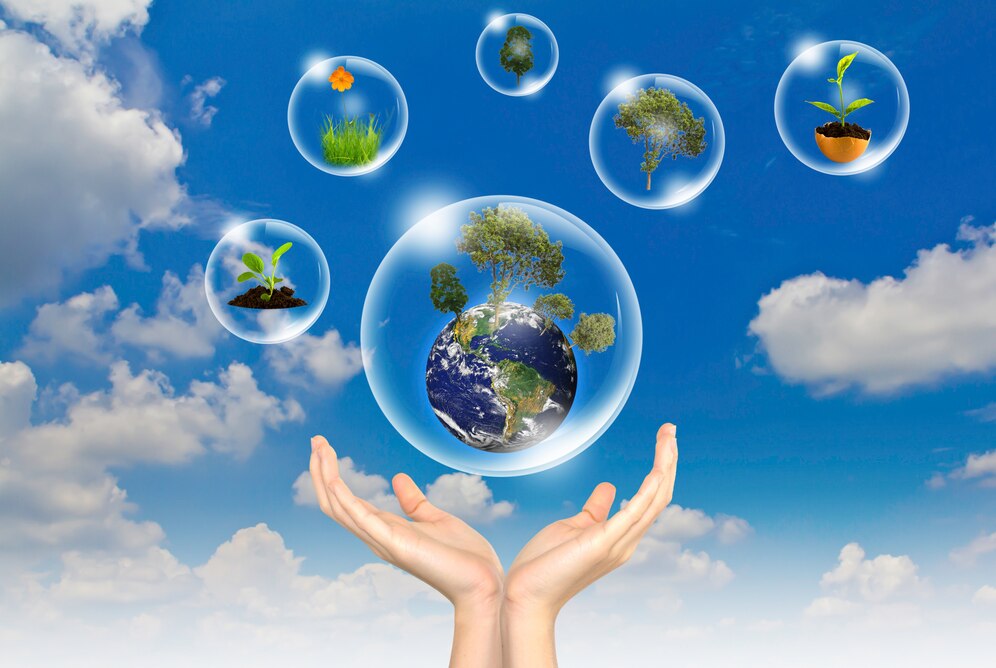
Climate change is no longer a distant threat; it is a present reality that is reshaping our planet and our lives. Defined as long-term alterations in temperature, precipitation, wind patterns, and other elements of the Earth's climate system, climate change is driven primarily by human activities. Greenhouse gas emissions from burning fossil fuels, deforestation, and industrial processes have dramatically increased since the Industrial Revolution, leading to global warming and a cascade of environmental challenges.
The climate crisis has already been solved. We already have the facts and solutions. All we have to do is to wake up and change, said Greta Thunberg, a prominent climate activist. Her words underscore the urgency of global action.


Impacts of Climate Change
The effects of climate change are wide-ranging and profound. Rising temperatures contribute to more frequent and severe heatwaves, droughts, and wildfires. In 2023 alone, the Mediterranean region witnessed record-breaking wildfires, with devastating impacts on ecosystems and communities.
Sea-level rise is another alarming consequence, driven by melting glaciers and thermal expansion of seawater. According to NASA, global sea levels have risen by about 8 inches (20 cm) since 1880, threatening coastal cities and small island nations.
Extreme weather events, such as hurricanes, floods, and cyclones, are becoming more intense and unpredictable. The 2022 Pakistan floods displaced over 33 million people and highlighted the disproportionate impact of climate change on vulnerable populations.
Antarctica Turning Green
One of the most striking and concerning signs of climate change is the greening of Antarctica. Scientists have observed that as temperatures rise, melting ice and warmer conditions are enabling the growth of mosses and algae across the continent. A study published in Nature Communications revealed that parts of Antarctica are now experiencing rapid biological changes. This greening phenomenon is an indicator of how far-reaching and unprecedented climate change has become.
"Antarctica is often considered a remote and unchanging wilderness, but the changes we are seeing are profound and alarming," said Dr. Matt Amesbury, a researcher on the project. The greening of Antarctica not only disrupts fragile ecosystems but also has the potential to further accelerate climate feedback loops.
The Economic and Social Toll
Climate change is not just an environmental issue; it has significant economic and social implications. The World Bank estimates that climate change could push an additional 100 million people into poverty by 2030. Agriculture, a critical sector for developing countries, faces declining yields due to changing weather patterns and water scarcity. Additionally, health risks such as heat-related illnesses, vector-borne diseases, and respiratory issues are on the rise.
Solutions and the Path Forward
Addressing climate change requires a multi-faceted approach that includes mitigation, adaptation, and global cooperation. Mitigation efforts focus on reducing greenhouse gas emissions through renewable energy adoption, energy efficiency, reforestation, and transitioning to sustainable transportation.
Countries worldwide have pledged to limit global warming to below 2°C—preferably 1.5°C—under the Paris Agreement. However, current policies and actions are insufficient. The United Nations Environment Programme's 2023 Emissions Gap Report warns that without drastic cuts in emissions, we are on track for a catastrophic 2.7°C rise by 2100.
Adaptation measures are equally crucial to enhance resilience against the inevitable impacts of climate change. Building flood defenses, improving water management, and investing in climate-resilient agriculture are vital strategies.
"We cannot solve the problems of today with the same thinking that created them," Albert Einstein once said. This quote reminds us of the need for innovative solutions, such as carbon capture technologies, sustainable urban planning, and international climate finance.
The Role of Individuals and Communities
While governments and corporations play a significant role, individual actions matter too. Simple lifestyle changes, such as reducing energy consumption, using public transportation, minimizing waste, and supporting eco-friendly products, can collectively make a difference. Community-led initiatives, from tree planting drives to local clean-energy projects, are powerful examples of grassroots action.A Call to Action
Time is running out to address climate change. Every fraction of a degree matters, and every action counts. "The Earth is what we all have in common," said Wendell Berry, emphasizing our shared responsibility to protect our planet.
By embracing sustainable practices, fostering innovation, and working together across borders, we can mitigate the worst impacts of climate change and build a resilient, equitable future. As the stakes grow higher, so must our determination to act decisively and inclusively for the sake of generations to come.